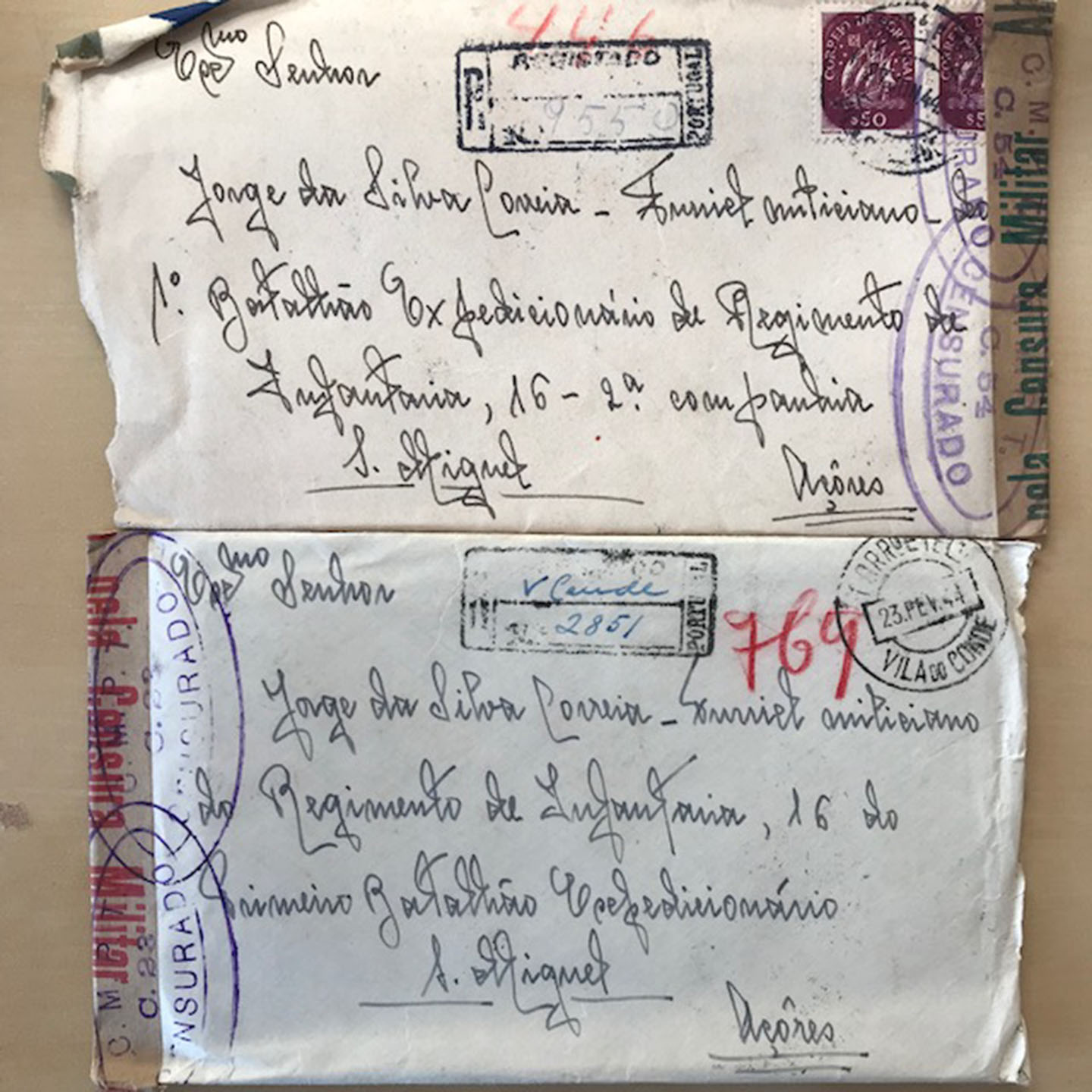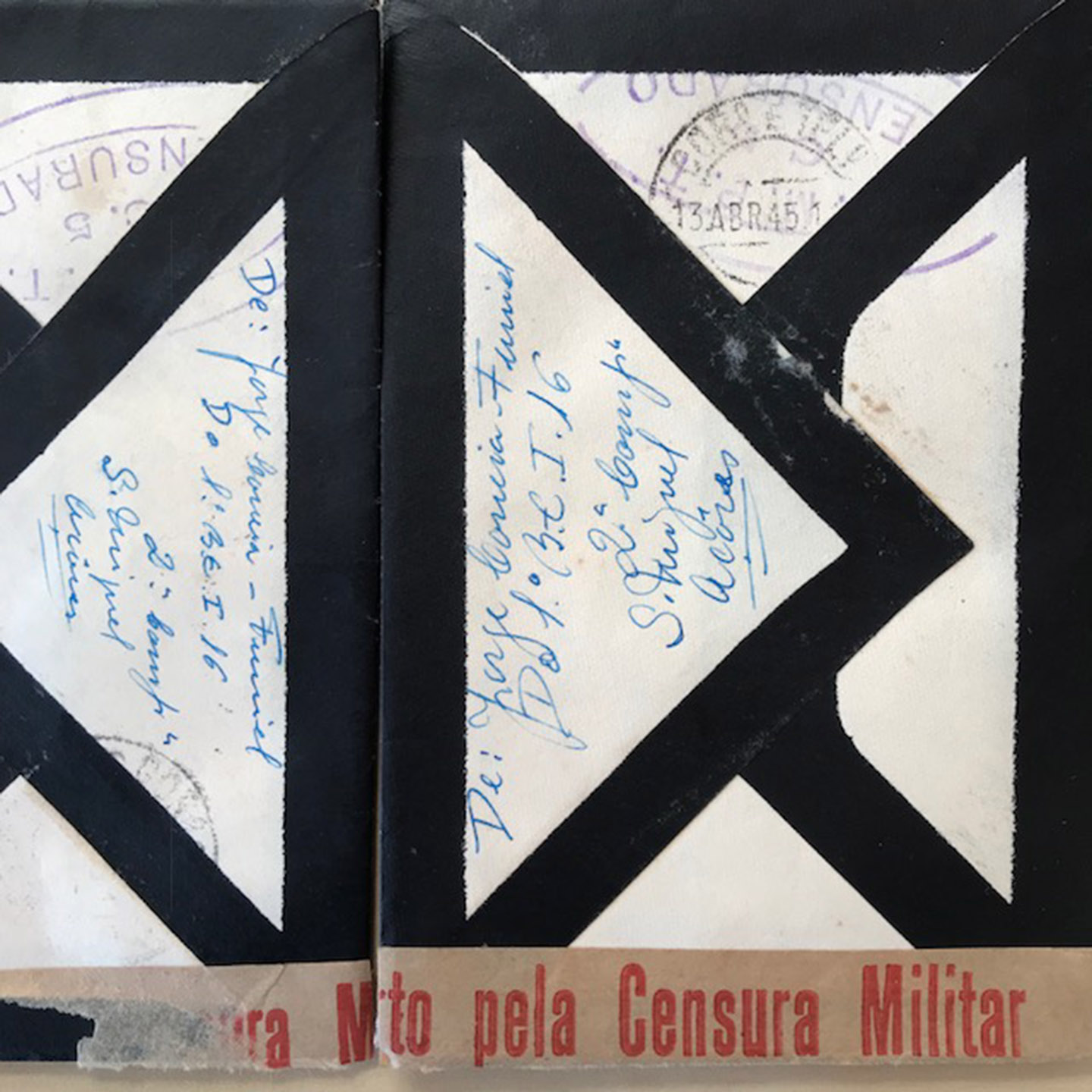
Two years ago, my grandmother passed away at 90 years old. She left in her boxes lots of memories that I started to get in order these last months. I found a big collection of letters, more precisely love letters, from when she and her husband were engaged.
I never met my grandfather, he died before I was born, he was 55 years old. My mother says I look a lot like him. He was born in 1920 and my grandmother in 1925. The letters were written from 1942 to 1947, most of this time he spent away from her, hence all the correspondence. The letters were their text messages of today!
She would write at least twice a week to him and he would write back, if not, she would be angry at him :). He went to serve the army in 1943. At this time, Portugal was ruled by the dictator António de Oliveira Salazar, founder of the Estado Novo. The second world war was happening. Portugal managed to stay neutral during war time, since 1939 until the war ended in 1944.
In 1944, Churchill convinced Salazar to give the Great Britain control of the Lages field in Azores for a strategic position that helped during the last year of the war. After the war, the United States shared with Portugal control of this station for the Air Force in Azores until today. It also had an important role during the cold war.
My grandfather was stationed in many places in Portugal, from Porto to Santarém, and in 1944, he went to serve in Azores and stayed there until 1946. My grandfather suffered a lot by being far away from his sweetheart and from his father. His mother had already passed away when he was eighteen and in 1945, his father died while he was in Azores.
When he came back from Azores to his hometown in Vila do Conde, he brought with him all the letters he had received from my grandmother, and there were a lot of them! He collected these memories that kept him going during those hard times away from his town.
In the letters we can see the stamps of the army, the dates, and most importantly, the paper stamp from the censorship. They would read the letters that arrived at Azores military station. Most of the letters he sent were not read by the censorship, but the ones he would receive were, probably of from a fear of news from the outside coming into the army.

The mourning or grief envelopes
He wrote the most touching letters, full of sentiment, of the love he had for my grandmother and his dedication to her. Especially in the mourning letters, when his father passed away, he looked for comfort in his words to her, of his pain, that he would share with her.
The mourning letters had a special paper and envelopes with black on the sides, and I believe this to have lasted at least a year. Even these ones were read by the censorship. She also kept all his letters that he had sent her, all from 1942 to 1947. They got married in 1948 and had two children in the following two years of the fertile post-war period.
Even though Salazar never liked Hitler too much and kept Portugal in neutrality until the end of the war, he was selling and trading with the Germans, for which, he was reprimanded by Great Britain at the end of the war. Portugal suffered not with bombs, but with hunger and repression.
People went on in their everyday lives, but because of the censorship, my grandparents could never mention the war, or difficulties during those years. They found comfort in expressing their love, companionship and friendship to each other.
Today, it is hard to imagine such a strong connection as they had, 5 years corresponding and talking on the phone, with occasional visits. All these handwritten letters were a way for my grandmother to stay close to him and to tell him of everyday life.
The handwriting of my grandmother was rather special, but my grandfather’s was not so great. Many times he complained that they didn’t have a table or desk to write on, so they would write their letters on their beds at night.
My grandmother outlived my grandfather for 40 years, but she never wanted to be with anyone else, even though she had one admirer. She lived her life much to herself, her friends and the church. Also with the grandchildren, like me. She spoke very little of him. She would recall the day he died many times. After gardening outside, he had a aneurysm and she found him dead, while he was washing his hands.